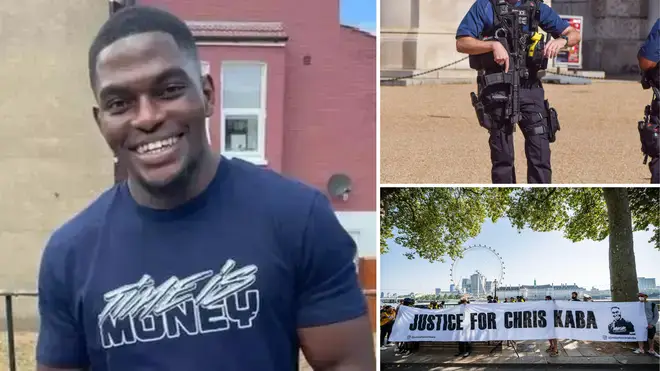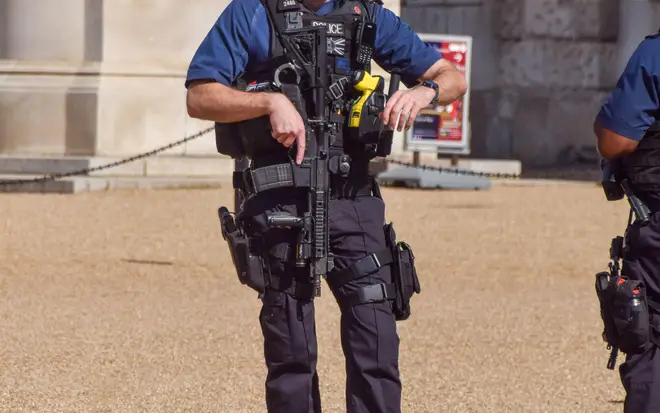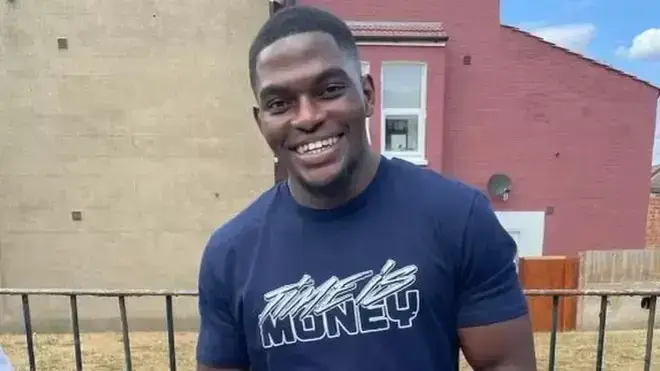
Paul Brand 10am - 12pm
5 February 2024, 07:17 | Updated: 5 February 2024, 12:47

Hundreds of officers have left the Metropolitan Police’s firearms unit in less than a year amid growing anger over disciplinary procedures and the decision to charge a colleague with murder.
The drop in officers carrying weapons is the highest in years, reflecting serious dissatisfaction among armed police about their jobs.
Between April and December 2023, the Met lost over 250 authorised firearms officers - one in 10 - compared to only 22 in the year leading up to March 2023, according to figures in The Times.
As of December, the most recent available data, there are 2,339 officers carrying firearms compared with a high of 2,864 in March 2020.
Hundreds of officers also left for other reasons, including resource allocation and disciplinary protocols.
Last September, dozens of officers handed in their weapons to protest the decision to charge a colleague with the murder of an unarmed black man, Chris Kaba.
The army had to be placed on standby as a result.

The 24-year old was shot in the head after a pursuit in Streatham Hill, London, and later died in hospital.
Photos of the aftermath showed a bullet hole in the windscreen of the Audi that he was driving.
Read more: Counter-terror cops resume full duties after handing back guns over Chris Kaba charge
The officer is only known at NX121, but his identity is expected to be revealed at a court hearing in March.
This has caused added anxiety among police from the specialist firearms unit, SCO19.

Former top Flying Squad cop speaks to LBC about Chris Kaba shooting officer
Sir Mark Rowley, the commissioner for the Met Police had attempted to put a stop to the revolt by pledging to push for new safeguards, such as fewer and quicker investigations into alleged police wrongdoings and stronger recognition of the need for self-defence.
A Home Office review is still ongoing.
Lord Macdonald KC, a former director of public prosecutions, led warnings from lawyers and police over the reaction.
They warned that police should not have a "veto" over prosecutors' decisions to change.
Rosemary Ainslie, head of the CPS Special Crime Division, said in September 2023: "Following a thorough review of the evidence provided by the IOPC (Independent Office for Police Conduct), the CPS has authorised a charge of murder against a Metropolitan Police officer following the death of Chris Kaba.
Kaba's family spoke about the impact of his death a year after the shooting.
They said they are worried about receiving "another call" when their children leave the house. His father Prosper said he has "lost the taste for life".

The possibility of less security also came from concern from police observers, since the Met had been involved in many scandals about officers abusing their power - such as when Wayne Couzens, a firearms officer, used his role to abduct, rape, and murder Sarah Everard.
In addition to the Christ Kaba case, the decrease in firearm-carrying officers also stems from low morale, poor pastoral care and the lengthy investigations led by the Independent Office for Police Conduct (IPOC).
A source told The Times: "Policing has changed over the past few years but the same issues exist internally and externally. The treatment of officers involved in police shootings and the lack of support from senior leadership, both publicly and privately, are some of the big issues. They don’t support the officers — it’s a token gesture now and again but on the whole it’s very poor.
"The other is the length of IOPC investigations into police shootings; many officers know they could be the next and they don’t have faith or confidence in the system that investigates them to be treated fairly."